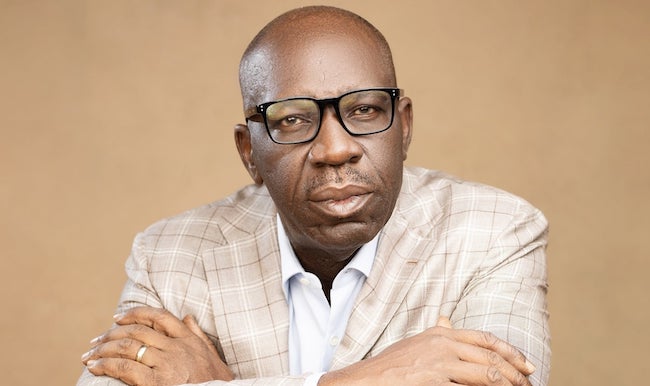News
Obaseki explains why he increased minimum wage to N70,000

Edo State Governor, Godwin Obaseki has explained why he increased minimum wage of workers in the state from N40,000 to N70, 000.
Obaseki gave the explanation when he spoke in an interview on Channels Television’s Politics Today on Monday.
It will be recalled that prior to the announcement of the N70,000, Obaseki paid N40,000 paid as against the N30,000 national minimum wage.
According to the governor, with the depreciating value of the country’s currency – the naira – and the rising cost of living, it made sense to introduce a new minimum wage for state workers.
“Let us understand this new minimum wage calculation. In 2011, when the minimum wage was N18,000, the exchange rate was N160/$ and so effectively workers in Edo State were taking home about $120 as minimum wage.
Read also: Amid naira’s value fluctuation, CBN raises Customs FX duty rate for cargo clearance to N1,327.35/$1
“When we increased the minimum wage to N40,000 in 2022, the exchange rate at that time was N450/$ so effectively, workers were getting about $96.”
“Today, 2024, with the N70,000 minimum wage at the current exchange rate of N1,257/$, what they are taking home is $55 which is less than 50 per cent of what they were earning about a year ago.
“For us in Edo State, we believe that the issue is about productivity; paying people well so that they can produce more and not pretending that you are paying them some salary when you know that that salary cannot motivate them to produce the goods and services that you require”, the governor said.
Obaseki further said that his government had to introduce the new minimum wage for workers in Edo State to reflect the current economic realities of the country.
“We are taking measures as a state to mitigate the situation that we found ourselves in today”, he added.
He said with the digitisation of work in the state, government has been able to save money which will be channeled to other areas including the payment of wages.
“So, we don’t spend [so much] money on stationery and all those costs used to run the government,” he said, adding that the state has also reduced the cost of energy by looking at alternative sources.
“Those savings, I use them to pay salaries,” he said.
Join the conversation
Opinions
Support Ripples Nigeria, hold up solutions journalism
Balanced, fearless journalism driven by data comes at huge financial costs.
As a media platform, we hold leadership accountable and will not trade the right to press freedom and free speech for a piece of cake.
If you like what we do, and are ready to uphold solutions journalism, kindly donate to the Ripples Nigeria cause.
Your support would help to ensure that citizens and institutions continue to have free access to credible and reliable information for societal development.